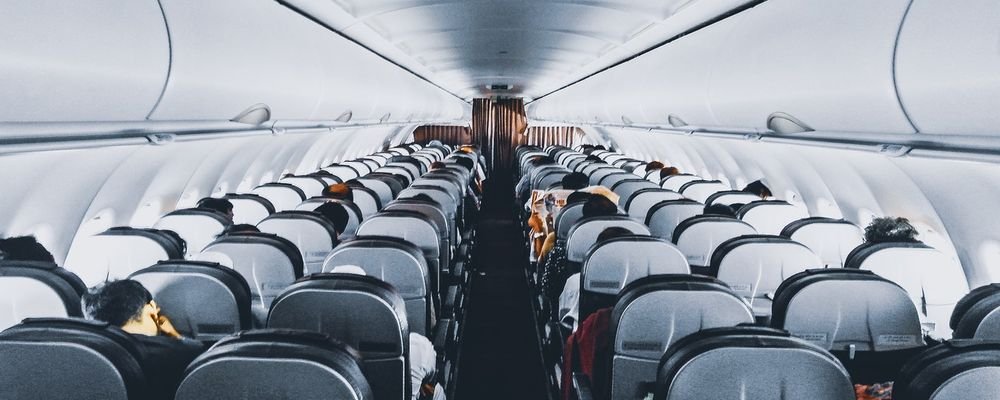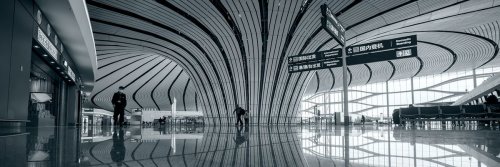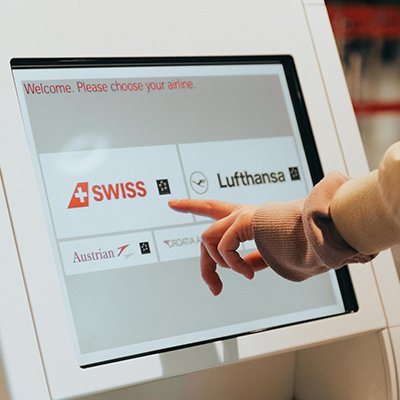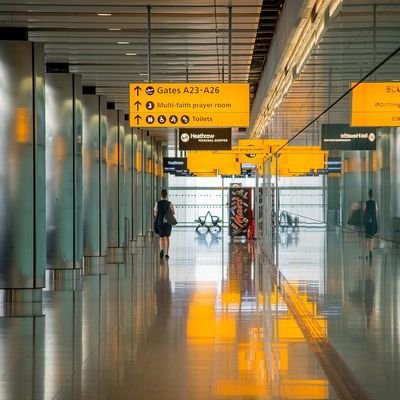Before the Covid-19 pandemic, the biggest issue facing the travel industry was the environment. Activists such as Greta Thunberg were pioneering flygskam – flight shaming, causing many travellers to reconsider how often they boarded a plane. Now that we are in the middle of a global pandemic, many of us won’t be taking a flight in the near future. Even when the pandemic starts to fade away and tourism resumes, will as many of us fly as before?
All around the world, governments are urging people not to travel. Even those countries that are slowly reopening are discouraging all but essential travel, making hopping on a cheap flight for a weekend away seem like a distant memory. When travel starts to resume, it will likely take some time before people feel confident enough to board an aircraft. Sitting in cramped conditions, in close proximity to strangers will take some getting used to.

There is no getting around the fact that airplanes are confined spaces. Even if all the seats aren’t full, you are likely to be sat within one metre of someone else, which could cause stress and anxiety, especially if a fellow passenger appears unwell. Your risk of contracting a virus like COVID-19 on an aircraft increases the longer you are on a plane, making a long-haul flight riskier than a short journey. But will people want to take short flights if there are other transport options available?
When we start to travel again, road trips in our own cars will seem like the safest option. If we are inside our own car, we will only come in contact with other people when we stop to fill up fuel, check into a hotel or if we break down and need roadside assistance. Train travel will also feel safer than air travel, as passengers can choose to sit away from other people and, in many countries, can open the windows to increase the airflow around the carriage.
Regional travel is likely to resume before international travel, with neighbouring countries beginning to open their borders to each other during the next few months. If people are only travelling a short distance, they are likely to travel by car or train, rather than r isk entering an airport and boarding a flight. Until a vaccine is widely available, travel by car or train is likely to be more popular than boarding an aircraft.
isk entering an airport and boarding a flight. Until a vaccine is widely available, travel by car or train is likely to be more popular than boarding an aircraft.
There are also likely to be restrictions in place for some time that discourage people from flying. Immigration control when entering a new country through the airport will include much longer lines than in the past, with COVID-19 tests and temperature checks a regular occurrence. In the near future, documents showing you have immunity to the virus or have been vaccinated are likely to be required to travel through airports. If you have neither of these, your travel options will be limited.
The airline industry has been greatly affected by COVID-19, and post-coronavirus airline tickets could be more expensive than we have been used to in recent years. However, it is also possible that airlines will reduce ticket prices to tempt people back to flying. This is something we aren’t likely to know until the time – and different airlines are likely to have different reactions.
We don’t yet know how long it will take for travel to get back to normality, but air travel is likely to be affected in some way until a vaccine is widely available. Those wishing to travel any time soon would be wise to seek out alternative modes of transport such as driving or taking trains for their journeys.
Emma Lavelle is a UK based writer and photographer and has her own blog Field and Nest.















